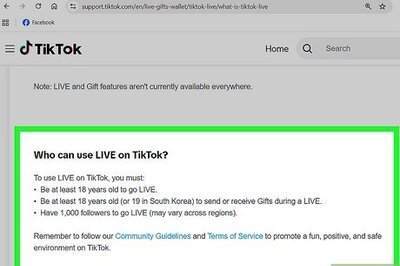
views
Cochin: Kerala pollution control board orders for the closure of HIL factory in Cochin manufacturing Endosulfan citing violations.
The step has been taken even as a petition was filed by CPI-M's youth wing Democratic Youth Federation of India (DYFI) in the Supreme Court seeking overall ban on the use of Endosulfan.
In its petition, DYFI has sought a direction to the Centre to prohibit the sale of Endosulfan in its present form or any other derivatives in the market.
DYFI, in its petition, said that a large section of people was directly affected because of the use of Endosulfan, already banned in 81 countries and its use not permitted in another 12 nations.
India is the world's largest user and producer of Endosulfan used for cotton and cashew plantations in Karnataka, Punjab, Assam and Andhra Pradesh.
The petitioner said several studies had documented that Endosulfan could also affect human development. It gave example of serious health hazards caused in Kerala's Kasargod district.
"Researchers studying children from an isolated village in Kasaragod district have linked Endosulfan exposure to delays in sexual maturity among boys.
Endosulfan is an off-patent organochlorine insecticide and acaricide.
"This colourless solid has emerged as a highly controversial agrichemical due to its acute toxicity, potential for bio-accumulation, and role as an endocrine disruptor," the petition said.
It said Endosulfan was the only pesticide applied to cashew plantations in Kasaragod for 20 years and had contaminated the environment there.
The petition assumes significance as Left parties and organisations associated with them have been leading protests in several parts of the country for imposition of ban on the pesticide.
On April 27, a group of Left MPs had held a protest in Parliament House demanding a ban on Endosulfan.
Kerala Chief Minister VS Achutanandan has led the agitation by going on a day-long fast. He has also written to his counterparts in other states to bring combined pressure on the Centre to impose a nation-wide ban on the pesticide.
The government had last week said it would take a view on the issue "in the best interest of the country" after the Indian Council of Medical Research (ICMR) submits its report.
"The use of Endosulfan has been banned in Kerala. However, imposing a nationwide ban would require national consensus backed by scientific study," a PMO release had said.
An all party delegation from Kerala had met the Prime Minister on February 22 and urged him to impose a nationwide ban on the pesticide.
Endosulfan was used extensively starting 1976 when the Kerala Plantation Corporation started spraying it aerially. In 2001, it was banned temporarily and in 2003 completely by the Kerala state. By then it was too late. Studies have documented that people exposed to it fell prey to neurological disorders, skin and respiratory ailments.
"What I understand is that giving them a solarium does not help much. The government has to be committed to looking after a victim throughout his life. Some of them are bed ridden," said the former chairman of the Kerala Bio-diversity board VK Vijayan.
But the Environment Ministry has remained non-committal on an immediate action.
"I have to discuss this with the Agriculture Ministry as well and let's see... as of now we shouldn't forget that Endosulfan remains banned in kerala," said Environment Minister Jairam Ramesh.
Official figures indicate about 3000 people in Kazargode were affected, but according to independent data the number is closer to 8000. About 500 people have died. But existing relief packages are too small and have come too late.
(With additional information from PTI)




















Comments
0 comment